A Creative Community Growing Together, the Rainbow Project 2020-10-05
One of the most popular attributes companies look for is creativity. In a rapidly changing era, creativity in solving problems with new ideas is essential to be a leader rather than a follower. However, expressing creativity is hard to do alone. People need an environment where they can think and present ideas freely and form helpful relationships for growth.
Smilegate Foundation launched the creative workshop, "Rainbow Project" for children at local children's centers in 2019. If last year's project was an opportunity to introduce creative activities using IT technology to children who lack a creative environment, this year's project aims to form a creative “community” where children can perform activities based on their interests.
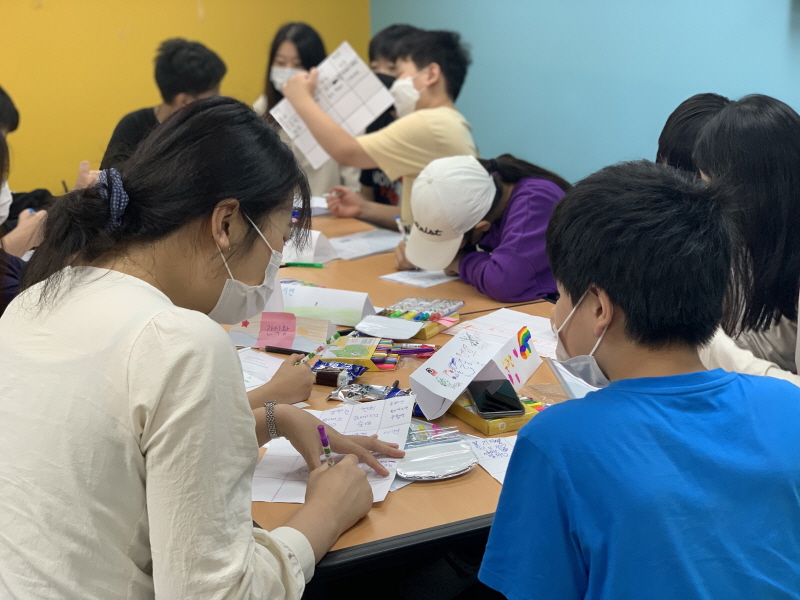
| Evolving creative community
A community is an autonomous group based on interests. People try their best if they are doing something they like. It would be ideal to have someone with the same interest when you are doing so. This is the reason creative communities are important to draw proactive and autonomous characteristics for creation from children.
For example, the process of developing and sharing creations is an event where children can express what they want, the way they want to. They can also learn to socialize, learn rules and behaviors, and become a healthy functioning member of society.
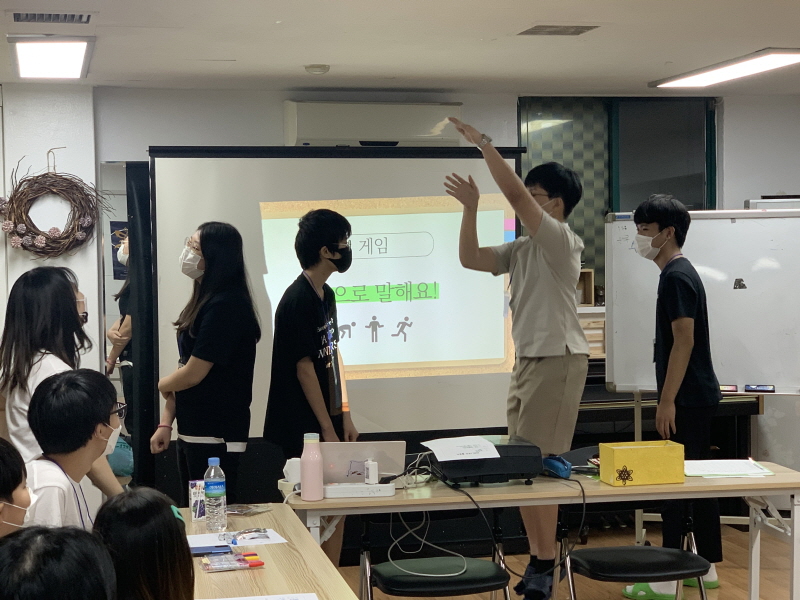
These are all positive experiences for children in vulnerable situations in that they can learn necessary skills as a member of society and express themselves.
| College creative mentors
Within the creative community, assistants play an important role. Smilegate Foundation selected four teams of college creative mentors (KAIST Education Volunteer Club SEED, Duksung Women's University Computer Engineering Department Neul-pureun Sori, Hanyang University Information Systems Department High Five, and Hanyang University Computer Software Department Oh Park Kim).
Their motivation for participating in the Rainbow Project was different but they all wanted to share their talent with society by becoming mentors.
"I learned that it is important to understand mentees' thoughts and views through constant questioning rather than giving them the answer"
– Won Chang-hyun, KAIST SEED Team
"All four of us switched to the computer science major. We found our interest in coding later on, so there were a lot of difficulties.
I hope this will be an early opportunity for children to explore and discover their interests"
- High Five, Department of Information Systems, Hanyang University
The two-day Future Lab Creative Workshop orientation shares the meaning and philosophy of creation, introduces Micro:bit, contemplates on how to build relationships of “Generation Z” children, and simulates the actual class.
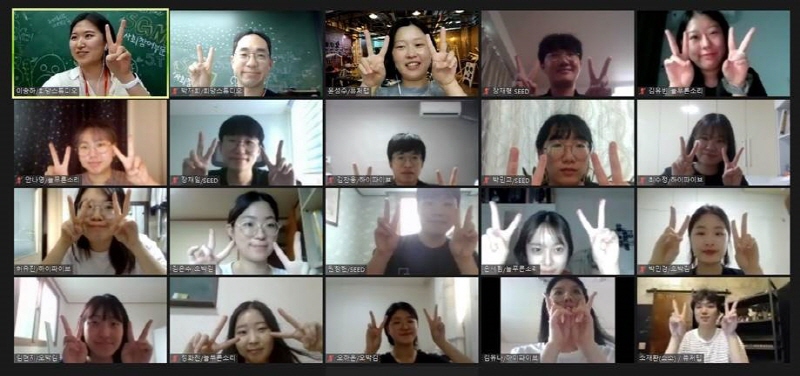
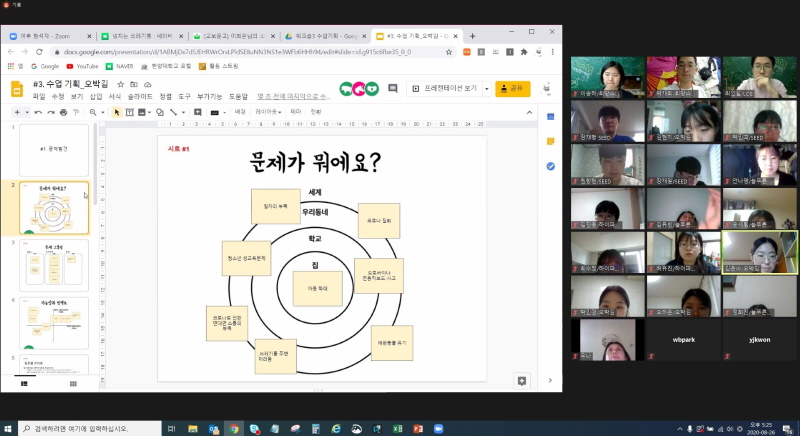
| First meeting, the start of the Rainbow Project
The Rainbow Project began in the third week of September. Children who have not been able to visit the local children's centers due to social distancing were excited to meet their friends and mentors.
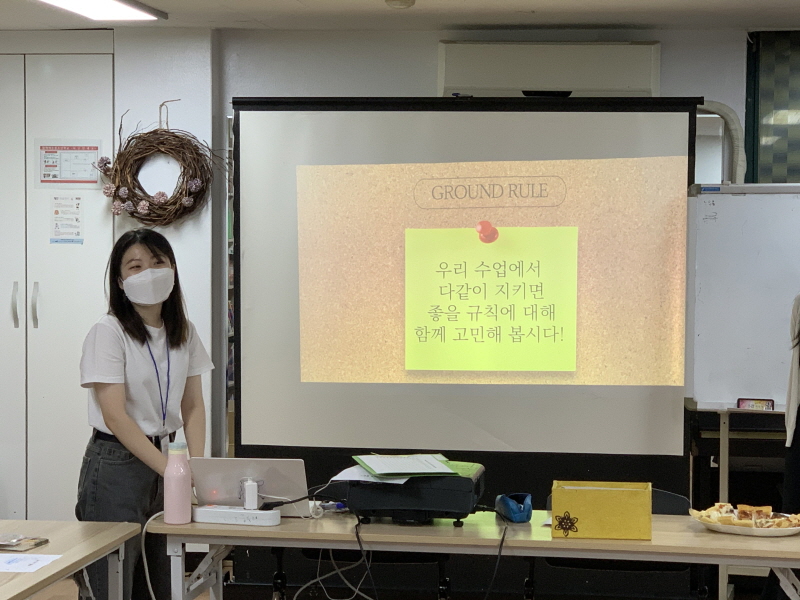
In the first period, college mentors introduced themselves and set rules for further engagement. Excited students asked questions like “Will we be able to code next week?”, showing their anticipation.
“My name is OOO and I am in the 4th grade. I like to play Jenga. I want to know if I can make Jenga through coding”
“I have coded before at school, but it was difficult. I am excited to make whatever I want and have the mentors help me”
The Rainbow Project, conducted by four organizations including a local children's center near Seongnam city, will be held every week for the next six months. College mentors will come along for the journey.
The "M.A.P. Tool pack," a creative learning tool, was developed by Future Lab for the project. Children can easily understand the principles of coding and express themselves by utilizing Micro:bit, electronic components, and materials included in the pack. There will also be a “<Micro:bit Global Challenge” at the end of the year to try to solve societal issues. It will provide motivation and an opportunity to solve societal issues for the children. We are excited to see the growth they will have made after six months in the “Rainbow Project”.
|


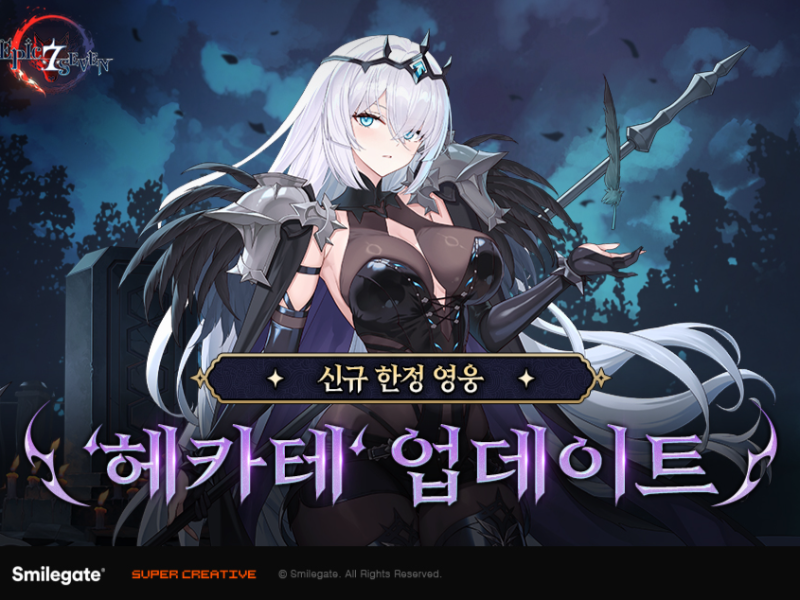
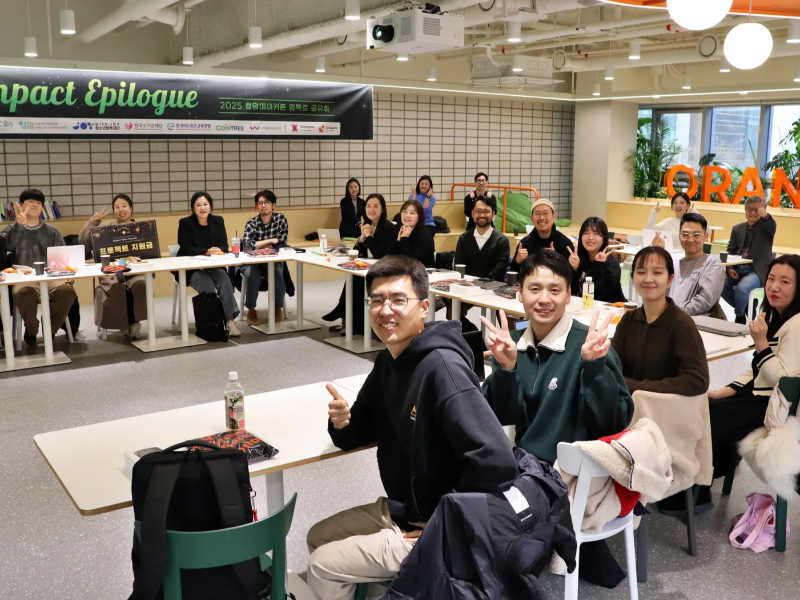


 TOP
TOP
